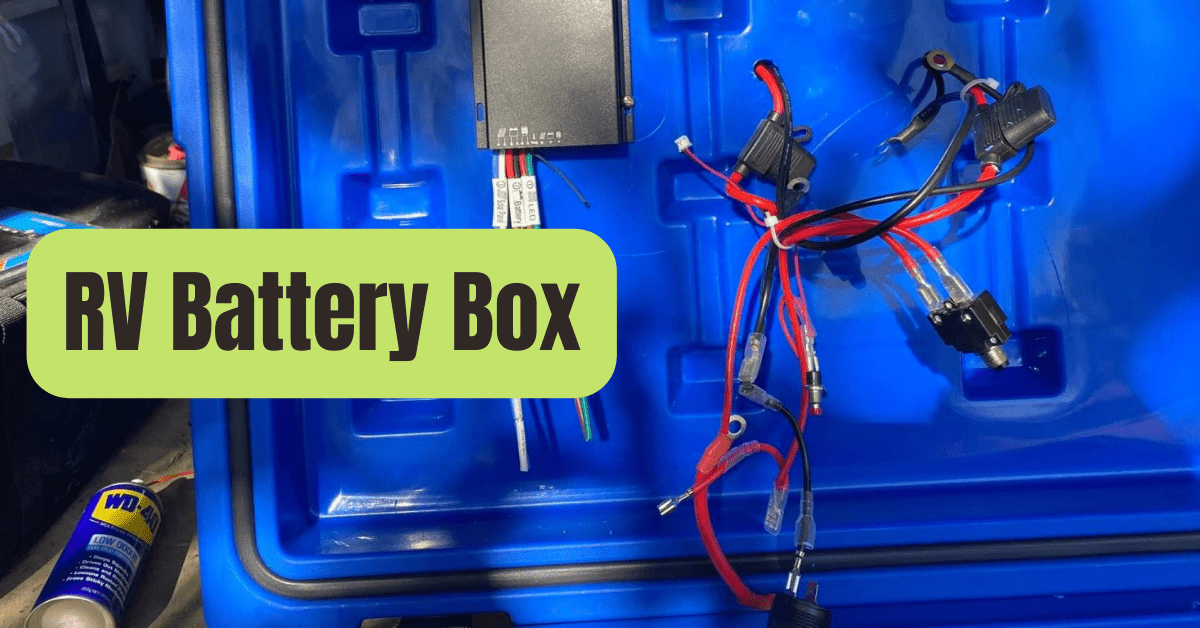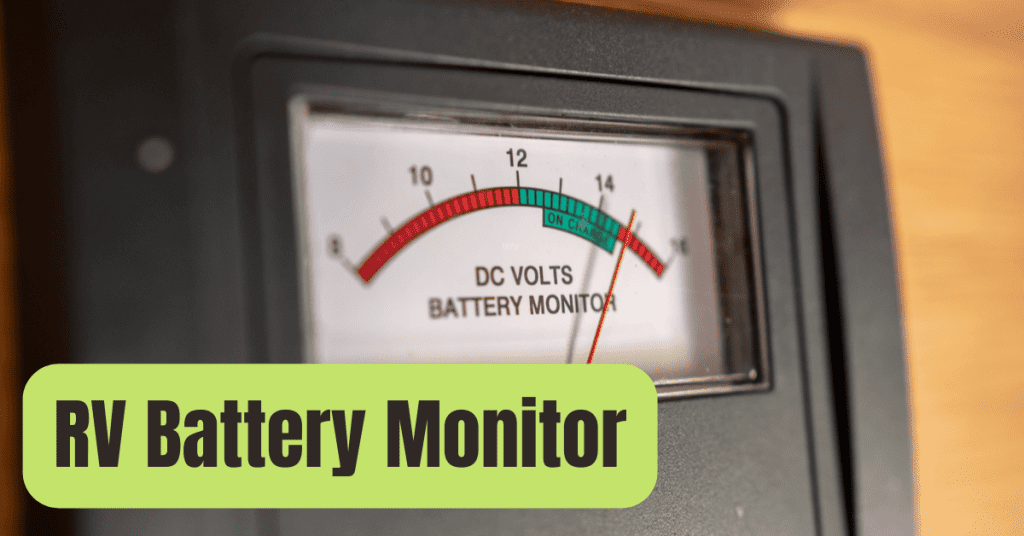One of the most crucial components of any recreational vehicle is the battery; without one, you won’t have any power.
You need an RV battery box to shelter your batteries from the weather and keep you safe from the harmful charge.
It’s simple enough to buy an RV with a battery box already installed or to buy a replacement, but before you make any snap judgments about your RV battery boxes, here are six things to think about.
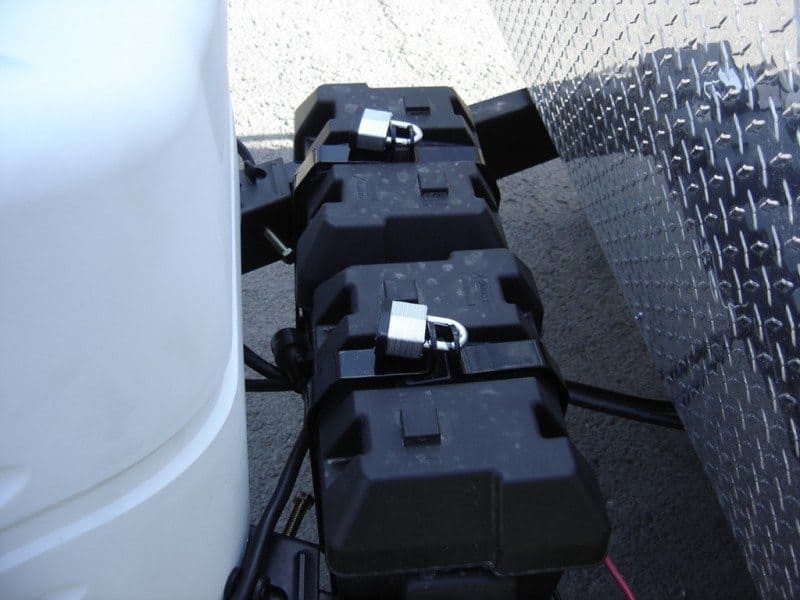
#1. Batteries Types
You must first comprehend your RV battery in order to comprehend a battery box.
Motorhomes use two different types of batteries: one to start the engine and the other for “deep cycle” uses like keeping the water flowing and the lights on even when the vehicle is off.
Although deep cycle batteries should never be utilized, starting batteries are typically 12-volts.
These are kept in the engine compartment.
Fifth wheels and travel trailers lack starting batteries.
On the other hand, deep cycle batteries are included in all types of RVs.
These batteries, which are also known as “coach batteries” or “house batteries,” may be one 12-volt battery, many 6-volt batteries connected in series, or even more than one 12-volt battery connected in parallel, giving you more amp hours to work with.
In either scenario, your 12-volt electrical system will be powered by these home batteries, providing you with power for your lights, refrigerator, fans, and other 12-volt appliances even when you are not plugged in.
Before buying any new batteries, check your current supply to see what you currently have and take into account your demands.
It may not be required to upgrade if you stay at RV parks the most of the time.
But frequent boondockers may need a technique to store additional electricity for off-grid usage.
#2. Battery Prices
Depending on the kinds, sizes, and brands of batteries you purchase, RV battery costs might vary greatly.
Your budget will, of course, determine the battery choice you choose.
However, there are still additional factors to take into account, so do your research before shopping.
#3. What Is A Battery Box For An RV?
You may want to understand why the hell you even need a battery box now that you at least have a basic knowledge of what an RV battery is and does.
A battery box is essentially a portable carrying cover for the battery that protects it from substances like fuel, water, and other leaks.
In the event that the battery itself leaks, it also protects other components of your RV.
The cases are normally composed of heavy-duty polypropylene plastic, which may keep undesired substances out even though they are relatively lightweight.
You really need one unless you want to continuously endanger one of your car’s most important components.
Some folks choose to purchase an RV battery tray rather a box.
These trays are used to strap batteries into position, as the name would imply.
They could seem to be a good option, but unlike the boxes, they don’t shield the batteries from battery acid leaks and water damage.
Battery boxes are often a better choice since they are more affordable and maintain batteries for longer.
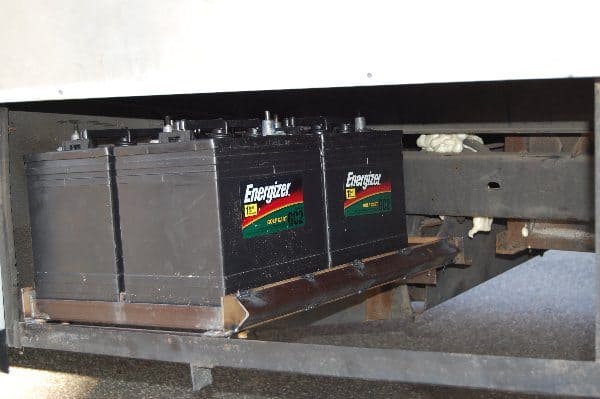
#4. Qualities
Any RV battery box’s capacity for batteries is its primary and most noticeable characteristic.
This won’t often be a huge worry since many batteries have their own boxes and others are designed to fit into most 12-volt battery boxes.
However, it’s always a good idea to check again before making a purchase.
It should be noted that an RV dual battery box must be purchased in order to handle multi-purpose batteries due to their special construction.
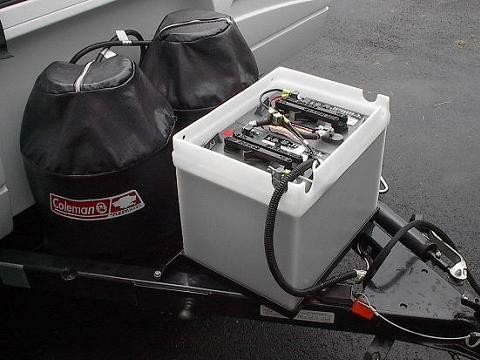
Simply comparing the descriptions is the simplest approach to understand the characteristics of any RV battery box.
Many have patented designs with locking tabs to ensure the top of the box remains fixed to keep out the weather and openings to enable wires to pass through.
Resistance to acidity, oil, UV exposure, and cold and hot weather conditions should also be standard.
Additionally, although the battery should be protected from water infiltration and battery acid leakage, it also has to have sufficient ventilation.
Again, most battery boxes will work, but it’s a good idea to verify the specs or ask a salesperson to make sure you aren’t purchasing something that is insufficient.
Examining the specifications to check how temperature-resistant a battery box is might be one of the greatest methods to judge its quality.
Some may resist temperatures of up to 120 degrees and as low as -20 degrees Fahrenheit, while others may be able to endure temperatures of at least -40 degrees.
This may be a decent indication of how hearty it is even if you hopefully never have to test these bounds.
#5. Battery Boxes With Vents

Given the right installation, you may access the deep cycle batteries of your RV inside the actual cabin thanks to the vented RV battery box’s ventilation system and ability to be put in an interior setting.
Basic operations are explained by PPL Motor Homes as follows:
A kit (wall connection, outside vent, and 9′′ hose) is included with vented battery boxes for indoor installations. To aid with airflow, the bottom of this vented battery box features a hole. The item complies with the RVIA Code. NOTE: Because the top and bottom of this box are similar, the hole in the bottom has a projecting flange as well, preventing it from resting flat on a firm base.
Some people may find this kind of battery box beneficial, however it is often more expensive and difficult to buy and install than normal battery boxes.
Speak to a salesperson at a nearby shop to find out how much installation will cost you if you have any reason to desire a battery inside your cabin or to protect it from high heat with additional ventilation.
#6. Price of Battery Box
You should now have a basic grasp of the elements of a typical battery box, but that is still insufficient to make an informed decision.
To avoid overspending and regretting it, you must understand how one brand compares to another.
Fortunately, battery boxes themselves are sometimes pretty affordable.
You’ll pay much more for a vented battery box.
You should now have a better understanding of what a battery box is, why you need one, and what to look for when buying one for your RV.
Pick one up as soon as possible to safeguard your RV batteries for years to come!

